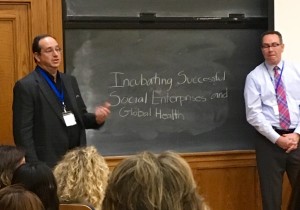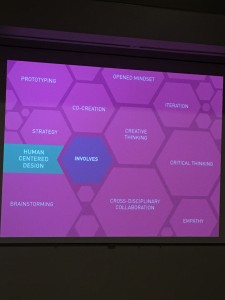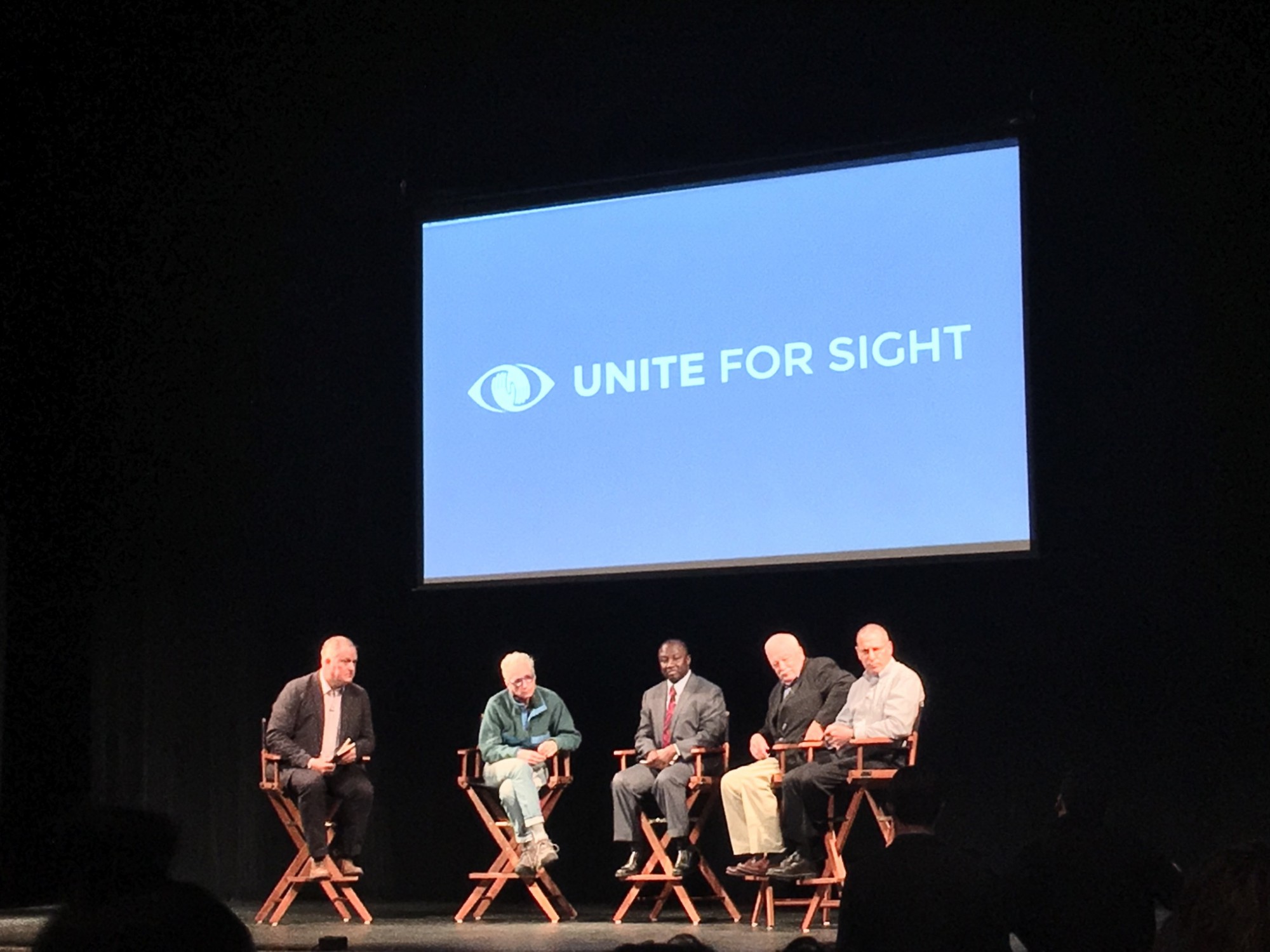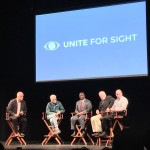
I applied for the Changemaker Catalyst Award in hopes of securing funding to attend a conference at Yale University centered at the intersection of social innovation and global health. As a master’s student at Tulane’s School of Public Health studying international health and development, I wanted to learn more about how social innovation and global public health work together to create global change. This is something I predict I will be a lifetime learning opportunity but through experience, I hope to also learn valuable skills for effecting change. Unite for Sight’s annual Global Health and Innovation Conference, the largest of its kind, is a great place for exploring this topic and to learn from current experts in the field.
Jordan Levy, Chief External Relations Officer of the Ubuntu Education Fund, said “We’re not going to change people’s lives over a short term grant period.” This was one of the beginning moments where I realized that this weekend was going to be a great experience for a soon to be graduate, looking for skills to propel me into the field of global public health.

Mr. Levy’s statement came from the first discussion on The Realities of Impact and Change. In his talk, he went on to explain the importance of setting appropriate expectations in regards to the timeline of impact. He stressed not to expect change overnight and to stop linking small dollar amounts (in donations or funding) with large scale change, as we so often do in the public health world. These sort of oversimplified ‘solutions’ end up being conflated with impact, when in reality, social change happens incrementally and often over long periods of time. Thus, it is our duty as public health professionals, social entrepreneurs and innovators to invest in the long term, while also scaling impact appropriately. Instead of focusing on scaling up and scaling big, he poses we should redefine our notion of scale, and instead emphasize scaling ‘deeper and further.’ These concepts of setting reasonable expectations for impact, a commitment to the long term, and scaling properly all brought up critical points for me to actively reflect on throughout the course of my career.
The conference is comprised of social impact and global health related panels, labs, pitch presentations, and workshops. The schedule spanned topics such as cultural competency, communications and advocacy, global health technology, capacity building, leadership skills, design thinking, data, and investing and development. The main focus of these topics related to maternal and child health, health care delivery, quality education, mental health and nutrition.

I attended selected discussions based on areas of interest as well as topics I wanted to explore more in depth. Prior to attending, I decided I had wanted to learn more about advocacy and communication skills, as an individual, but also as it relates to promoting a social mission. David Gold, Principal of Global Health Strategies emphasized the power of advocacy and communications.
In his discussion, he outlined eleven principles of effective advocacy and communication:
1. It saves lives by connecting people to resources, research and raising awareness.
2. It is opportunistic.
3. It requires a global perspective.
4. It requires evidence and a powerful moral foundation.
5. Local success drives global change.
6. Health systems are critically important.
7. It is essential to meet G20 summit goals.
8. Health and Disease Burden is not determined by the media- they won’t always cover the worst diseases.
9. Digital Media is transforming advocacy.
10. Focus on quality.
11. It requires passion and gratitude.
This topic has propelled me forward in pursuing further opportunities relating to advocacy and communication. After David Gold’s presentation, I decided to attend more workshops on the schedule relating to advocacy. It was in a social impact pitch about a citizen engagement model for improving global health, where I met Ken Patterson, the Director of RESULTS. RESULTS is a grassroots advocacy organization based in Washington DC. As it turns out, RESULTS has a local chapter in New Orleans focusing on poverty reduction strategies and global health where I am now able to volunteer and gain valuable skills in advocacy. With this organization, I will have the opportunity to meet with members of congress and their staff regarding passing new legislation that would prevent maternal and infant deaths in New Orleans as well as the United States.

Throughout this weekend, the experiences I had only got better and better as I attended more sessions. The highlight of the conference was a key note address from Jeffrey Sachs who skyped in from the Vatican. In his address, he spoke about financing universal health care coverage and the many aspects that must be considered. As a world renowned economist and the Director of the Earth Institute at Columbia University, he identified seven dimensions of financing universal healthcare, not just in the United States, but globally.
1. Universal Healthcare is financially out of reach for many developing countries due to poverty. Unfortunately, finding solutions to poverty is poorly understood at this point in time.
2. Monopoly’s affect price- in the US, the highly monopolized system of pharmaceuticals, services and access to care makes it ‘unjustifiably expensive.’
3. Access to technology is key. Right now, many places like the US, do not have optimal policies, preventing access to technology and which allow for Dimension number 2.
4. Humanitarian crises disrupt access to care, and in the case of Syria and the Middle East, it is depriving access to care of millions.
5. Environmental crises will exacerbate and further deprive individuals from access to proper healthcare.
6. Growing inequality economically will only widen the gap between those who can access healthcare and who cannot.
7. The way in which society conceptualizes health and the importance of accessing health care will play an important role in improving access to healthcare for generations to come.
Below is a three minute video clip of Jeffrey Sachs on his experience at the Vatican before diving in to the bulk of his address.
This was the height of my experience because Jeffrey Sachs highlighted many key issues that we, as public health professionals, care about. The seventh dimension, as mentioned above, I believe is paramount to achieving universal health care coverage in the United States and beyond. Moving toward a system in which society collectively agrees that healthcare is essential to living a dignified and productive life, only then can we catalyze social and political will toward ensuring this right.
From topics on human centered design, advocacy and cultural competency, to universal healthcare, this conference brought up important things for me to consider as I begin the transition from a student to working professional. The topics of advocacy and communication, setting realistic expectations and understanding the many dimensions of universal healthcare coverage will be significant skills for my future aspirations. In the future, I am looking forward to working with RESULTS and furthering my learning by attending Unite for Sight’s conference again.
After this experience, I am excited to be entering this field where the opportunities for positive change are unlimited. Thanks to the Changemaker Catalyst Award, I was able to experience this conference, learn from the insight of many field experts, form valuable connections with others, and experience New Haven, Connecticut for the first time. The Catalyst Award is aptly named as this conference experience has catalyzed, or set in motion, the process of understanding more fully the concepts of social innovation and social entrepreneurship and how they can work together with global public health strategies to promote change.
Gallery of selected photos of Yale’s campus and from the conference.






